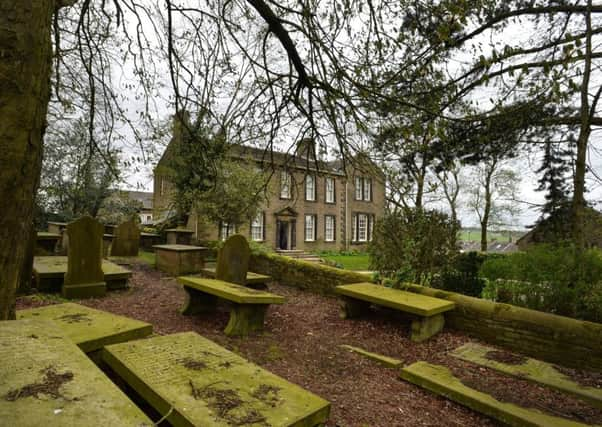Christa Ackroyd: Don't be a follower, be a Brontë


Rather than head to Haworth, as thousands do every year, I chose this week to tread less familiar cobbles on another Main Street just a few miles away, leading to a tiny terraced house in Thornton, where 200 years ago this week the most talented of them all, and certainly the most enigmatic, Emily Jane Brontë, was born.
It was once an unloved, uninviting warren of bedsits, its tarnished plaque proclaiming it to be the birthplace of all three famous sisters and their infamous brother virtually unnoticed for years. It is now a bustling coffee shop named after the woman whose bicentenary we celebrate this week and where this column was written in front of the same fireplace beside which Emily entered the world on July 30, 1818. For me walking in their footsteps is always a thrill. But hers in particular.
Advertisement
Hide AdAdvertisement
Hide AdThe tale of its famous inhabitants is anything but a dry old history lesson and is so much more than the handful of books and poems written by three vicar’s daughters. Even if you have never read them and you should, or at least some of them, no matter. Their story remains as vibrant, relevant, dramatic and uplifting as anything that came from their quills.
It should be a mantra to all young women today, that if you are told you can’t, as they were, you can, and if you are told you shouldn’t because it’s not your place, as they were, then you definitely should, because everyone has a voice worth hearing and a talent worth sharing.
Their problems were the same then as they are now for many young girls. Emily didn’t mix with people, couldn’t even look them in the eye.
If she was the most complex sister, then Charlotte was the most determined, but even she suffered from low self-esteem and considered herself so ugly that she created the original plain Jane. Even the more conforming baby of the family, Anne, didn’t fit, realising as a long-suffering governess she was friend to neither those above stairs nor those below, the real Agnes Grey.
Advertisement
Hide AdAdvertisement
Hide AdTheir world became the world they sought to challenge in fiction. Not one of them lived to 40 but yet they unwittingly became the most famous feminist writers of their age.
These were not posh girls living in a posh town. Haworth was a cesspit of open sewers, where adult life expectancy was 25 and four out of 10 children didn’t reach the age of six. They came from a single parent family, their mother Maria dying a painful death from ovarian cancer, less than a year after they moved to Haworth when Anne was only a baby.
Above all they were women, who like so many then and now, were deemed to be worthless, without a voice. Yet they never gave up the fight to find theirs and, when they failed, they picked themselves up and tried again.
When they enquired what they had to do to become writers they were told by the Poet Laureate of the day – imagine the audacity of even asking – that women had no place in literature, so they hid their gender as men not because they were frightened and timid but in order to tackle subjects as Charlotte put it considered “positively unfeminine” and not be judged. And tackle them they did.
Advertisement
Hide AdAdvertisement
Hide AdJane Eyre is about class, gender equality and the modern day obsession with a woman’s looks which sees our heroine screaming at the consequences of being “poor obscure plain and little”. But still she demands to be treated as “equal... as we are”.
Emily’s Wuthering Heights is not the greatest love story ever written. It’s a story of obsession and above all racism.
Think of their strength to find a way to tell those stories, to be heard in a man’s world. If I could instil into young girls today one message from theirs, it would be don’t be a follower, be a Brontë.
Imagine being so resolute you could demand a voice like Jane Eyre’s and proclaim, “I am not a bird, no net ensnares me. I am a free human being with an independent will which I now exert. “
If three vicar’s daughters from Bradford could do it 200 years doesn’t every young girl have a chance? That is their legacy.